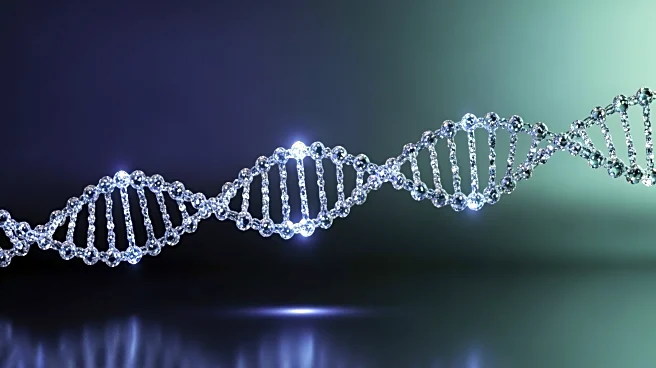What's Happening?
The Genetic Agency Technology Conference (GATC), hosted by Dyno Therapeutics in Boston, highlighted the integration of artificial intelligence (AI) in genetic medicine. The conference focused on 'genetic
agency,' defined by Dyno as the ability to take action at the genetic level for improved health outcomes. Key discussions included AI-guided AAV capsid engineering for gene therapy and the use of AI agents to automate research and development workflows. Dyno's platform incorporates structure-based and large language models for protein design, addressing challenges in generative therapeutic design. The conference featured prominent figures such as George Church, PhD, co-founder of Dyno, and presentations on AI applications in protein design and virtual cell models for drug discovery.
Why It's Important?
The integration of AI in genetic medicine represents a significant advancement in therapeutic design and personalized medicine. By automating complex processes and enhancing protein design, AI can democratize access to innovative treatments, potentially reducing costs and increasing efficiency in drug development. This approach could lead to breakthroughs in treating genetic disorders and diseases with previously 'undruggable' targets. Stakeholders in the biotechnology and pharmaceutical industries stand to benefit from these advancements, as they promise to accelerate the pace of research and expand the scope of genetic therapies available to patients.
What's Next?
Dyno Therapeutics plans to expand its AI agent platform, inviting beta testers to explore new workflow, knowledge, and protein structure agents. The continued development of AI-driven models and tools is expected to further enhance genetic medicine capabilities. Future conferences, such as next year's GATC, will likely showcase progress in achieving true genetic agency, with potential implications for regulatory frameworks and industry standards. Stakeholders, including researchers, biotech companies, and healthcare providers, will be closely monitoring these developments to adapt and integrate AI innovations into their practices.
Beyond the Headlines
The ethical implications of AI in genetic medicine are profound, raising questions about data privacy, consent, and the potential for genetic discrimination. As AI tools become more prevalent, there will be a need for robust ethical guidelines and regulatory oversight to ensure responsible use. Additionally, the cultural impact of genetic agency could shift societal perceptions of health and disease, emphasizing proactive genetic interventions over traditional treatment methods.









